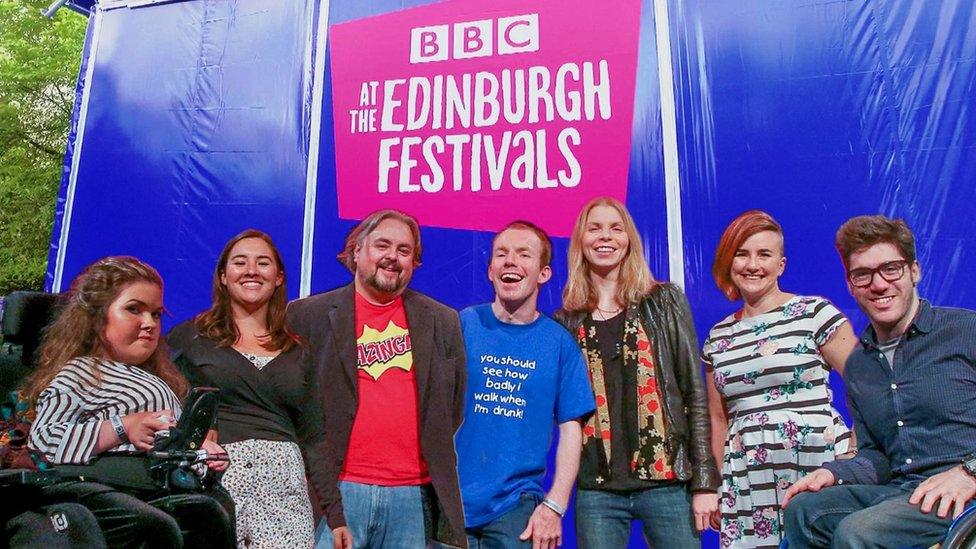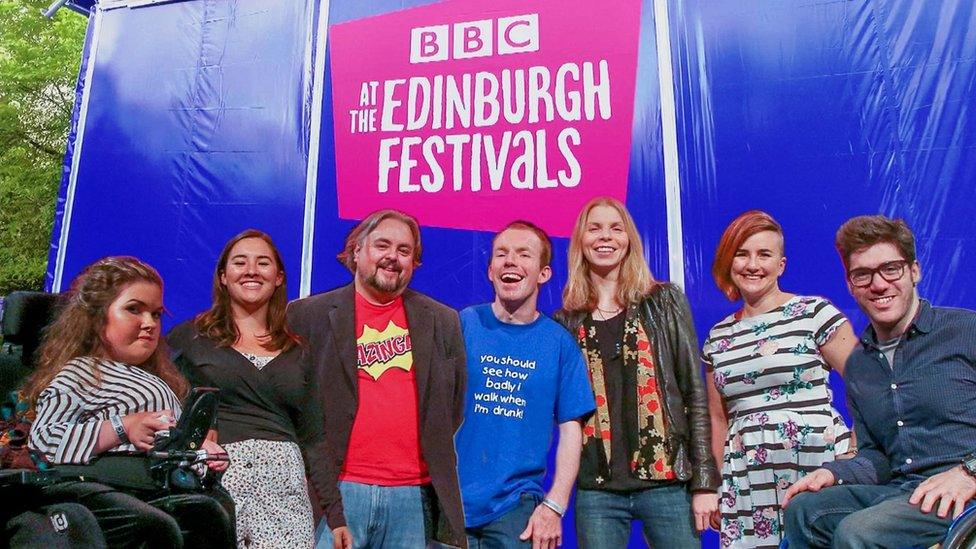Some top tips for storytelling
- Published

Time is running out... get your entries in by 10am on 2nd July
Do you want to tell your story at BBC Ouch: Storytelling Live at this year's Edinburgh Festival Fringe? If that's a yes, you better get writing before the newly extended deadline of 2 July.
We're looking for true stories that happened to you and must be related to being disabled or having a mental health difficulty. The theme for all story submissions this year is Lost and Found - which you can interpret for yourself.
For all the intricate details visit our call-out page here.
To give you a bit of inspiration and to help with the structure, we reached out to Amanda Farley at the BBC Writers' Room for some top tips on writing a great story that will work well when performed on stage and on TV.
Amanda - it's over to you.

Struggling for ideas? Follow Amanda's easy tips!
Less is often more. As you'll be writing a real story from your life, you don't want to just re-live the entire event. As a writer it's your job to select only the details the audience absolutely need to know to be able to follow the story.
Be specific - it's the little details that bring stories to life.
Make it personal. This is your story and the audience will connect to your emotional response. Think about how fascinated we all are by other peoples' lives and how interested we are in how they respond to certain events.
Grab attention. Start with a strong opening line that really sets the scene and puts the audience right in the middle of the action or sets up what is at stake in your story. What was the jeopardy in the situation you want to write about?

Build up the tension to a moment of change or climax. It can help to figure out where the 'big' moment is and then keep building the tension to delay that moment as long as possible. Think about the latest boxset you've binged on and how long it drew out the big reveal - often over several episodes. You'll have about eight minutes to tell your story - just saying.
Go for a strong ending. Give your story a definite ending. Ask yourself whether you really need those extra few sentences once everything has been resolved.
Most importantly, have fun, be yourself and enjoy telling your story!
Oh and get it in on time - Send your stories to ouch@bbc.co.uk, external by 10:00 BST on 2 July. Our slightly lengthened deadline gives you a whole extra few days and a weekend to finish your story off.

- Published7 June 2019
